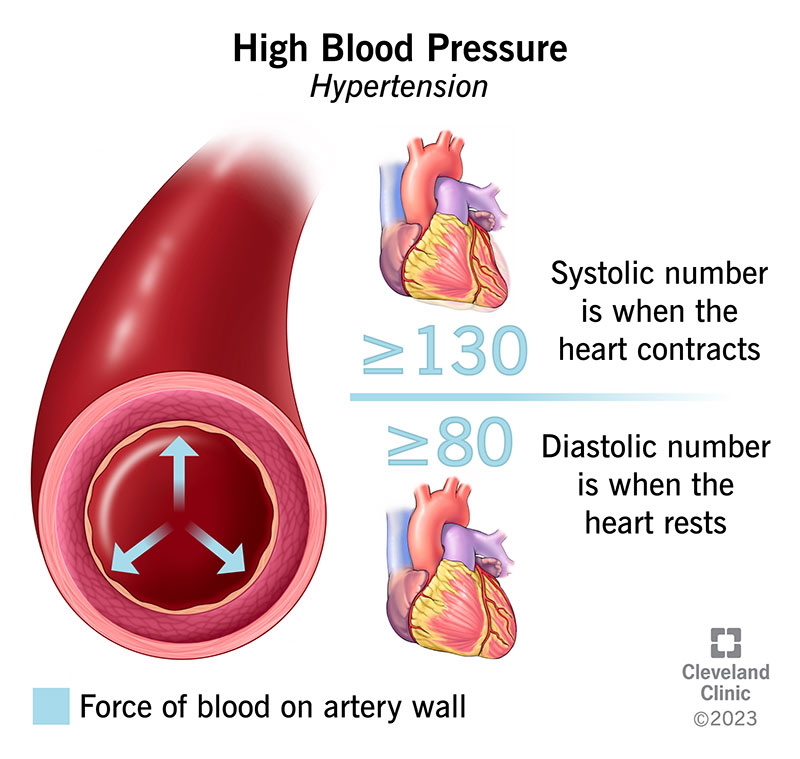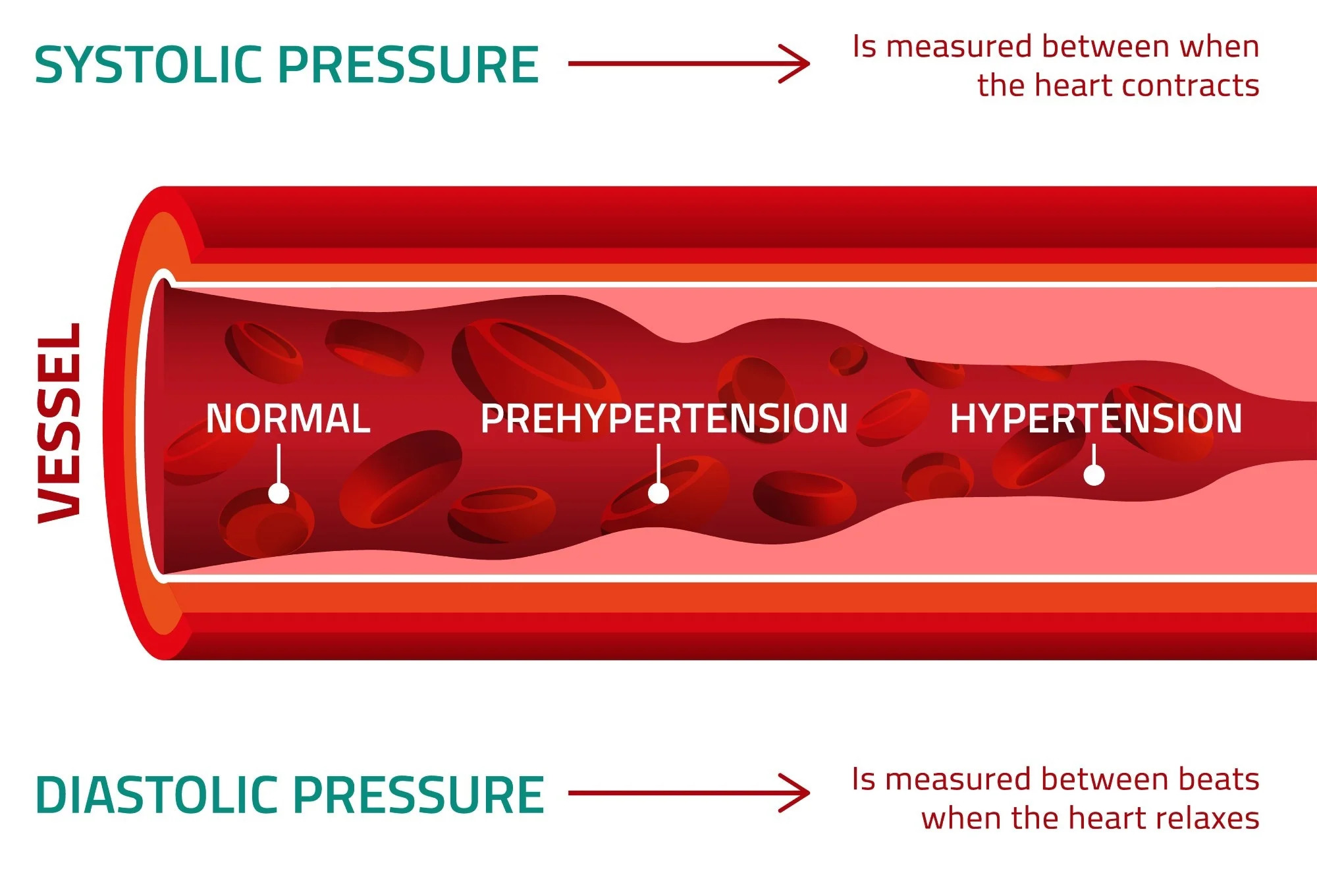26
Hypertension (High Blood Pressure)
Hypertension, or high blood pressure, is a common health condition where the force of blood pushing against the artery walls is consistently too high. This condition can lead to serious health complications if not properly managed. In this article, we will explore the causes, symptoms, diagnosis, and treatment options for hypertension.
What is Hypertension?
Hypertension is characterized by blood pressure readings of 130/80 mmHg or higher. It is often referred to as the "silent killer" because it may not produce noticeable symptoms, despite causing damage to blood vessels and organs over time.

Causes of Hypertension
Hypertension can be categorized into primary (essential) and secondary types:
-
Primary Hypertension: This is the most common form and develops gradually over many years. It does not have a single identifiable cause but is influenced by factors such as genetics, age, obesity, lack of physical activity, and high sodium intake16.
-
Secondary Hypertension: This type is caused by an underlying medical condition, such as kidney disease, adrenal gland tumors, thyroid disorders, or obstructive sleep apnea. It tends to appear suddenly and can cause higher blood pressure than primary hypertension23.
Symptoms of Hypertension
Most people with hypertension do not experience symptoms until the condition becomes severe. In cases of hypertensive crisis, symptoms may include headaches, heart palpitations, or nosebleeds5.
Diagnosis of Hypertension
Diagnosis involves measuring blood pressure with an arm cuff. Multiple readings over time are necessary to confirm the diagnosis, as blood pressure can fluctuate5.
Management and Treatment
Treatment for hypertension typically involves a combination of lifestyle changes and medication:
-
Lifestyle Changes: Reducing sodium intake, increasing physical activity, maintaining a healthy weight, limiting alcohol consumption, and managing stress7.
-
Medications: Various types of medications are used to lower blood pressure, including diuretics, beta blockers, ACE inhibitors, and calcium channel blockers6.
Complications of Hypertension
Untreated hypertension can lead to serious health complications, including heart disease, stroke, kidney disease, and vision loss45.
Conclusion
Hypertension is a significant health concern that requires early detection and management to prevent long-term complications. Understanding its causes, recognizing its symptoms, and adopting a healthy lifestyle are crucial steps in controlling high blood pressure. By promoting awareness and encouraging proactive health measures, we can work towards reducing the impact of hypertension on individuals and communities worldwide.

References:
-
Mayo Clinic. (2024). High blood pressure (hypertension): Symptoms and causes. Retrieved from https://www.mayoclinic.org/diseases-conditions/high-blood-pressure/symptoms-causes/syc-203734101.
-
WebMD. (n.d.). Causes of High Blood Pressure - Risk Factors. Retrieved from https://www.webmd.com/hypertension-high-blood-pressure/blood-pressure-causes2.
-
Medical News Today. (n.d.). High blood pressure (hypertension): Symptoms and more. Retrieved from https://www.medicalnewstoday.com/articles/1501093.
-
World Health Organization. (n.d.). Hypertension. Retrieved from https://www.who.int/news-room/fact-sheets/detail/hypertension4.
-
Cleveland Clinic. (2025). High Blood Pressure: Symptoms & Causes. Retrieved from https://my.clevelandclinic.org/health/diseases/4314-hypertension-high-blood-pressure5.
-
Healthline. (2024). High Blood Pressure (Hypertension): Causes and Symptoms. Retrieved from https://www.healthline.com/health/high-blood-pressure-hypertension6.
-
CDC. (2025). About High Blood Pressure. Retrieved from https://www.cdc.gov/high-blood-pressure/about/index.html7.

